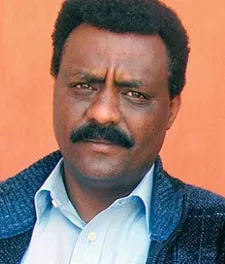Eritrean Information Minister Ali Abdu Ahmed, government spokesman and censor-in-chief of the Red Sea nation, has been invisible in the past few weeks. The total absence of any independent press in Eritrea has allowed the government to maintain complete silence in the face of mounting questions and surging Internet rumors of his defection.
It was on November 17 that U.K.-based Eritrean opposition news website Assena first reported, citing unnamed sources, that Ali had sought asylum in Canada. Ten days later, Madote, a pro-government site, dismissed the Assena report and claimed, citing unnamed witnesses who reported by phone, that Ali was “seen walking in the capital and discussing with citizens.”
Radio France Internationale reported on December 18 that Ali had defected in late November during a business trip to Europe and that his home had been searched by security agents. An editorial on U.S.-based Eritrean news site Awate criticized the impulse to pursue scoops on Ali’s whereabouts at the expense of investigative reporting and analysis of the reasons behind his possible disappearance.
Amid the contradicting reports, few facts are available. International media and exiled Eritrean journalists agree that Ali traveled to Europe in September before disappearing from view some time in November. Ali is still listed as the minister of information on the government’s news portal Shabait, and the dedicated “Contact Ali Abdu” link is still there. Yet, based on images broadcast on state-controlled ERI-TV, Ali was absent from the most recent meeting of cabinet ministers. Was Ali traveling or sick? With the government’s absolute stranglehold on news and information, it is virtually impossible to know the truth. “I called the Ministry of Information and the rude bitch hanged up on my face. #WheresAliAbdu +291117111 #smh,” tweeted @EriRevoltMay24, a diaspora opposition activist, on December 17.
Eritrea is the most censored country in the world, according to CPJ research. The government operates under an Orwellian system of control; all media is state owned, and journalists who have fled into exile say that Ali directed every detail of coverage. The last accredited foreign correspondent was expelled in 2007. The fates of independent journalists who disappeared into government custody since a September 2001 crackdown remain a state secret, and the government has all but erased the detainees from public record and memory. Ali is believed to be a keeper of such secrets.
Thus far, the only official reaction to the disappearance of Ali was registered on Twitter when Eritrea’s Ambassador to Japan, Estifanos Afeworki, responded to a question asked by Sweden-based journalist and activist Meron Estefanos on December 17. “Mr Ambassador, care to comment about the whereabouts of Eritrea’s Information Minister Ali Abdu?” tweeted Meron. “The whereabouts of Ali or his like is not a priority in Eritrea. In our democracy tolerance is fundamental. Why?” responded the diplomat. Jumping into the conversation, Eritrean-American journalist Salem Solomon insisted: “he’s the #Eritrean information minister (public office) & I think it’s a legit Q.” The diplomat would not budge, ending the engagement with “Ali is right person 2 give answer if any not me.”
In the absence of answers, the questions persist, particularly online. The search term “Ali Abdu” peaked in mid-November before dipping, but it’s on the rise again, according to Google Trends. “We just launched our #WhereisAli milk cartons, trying to track down the missing Minister of Information,” tweeted @EriRevoltMay24 on December 20.
